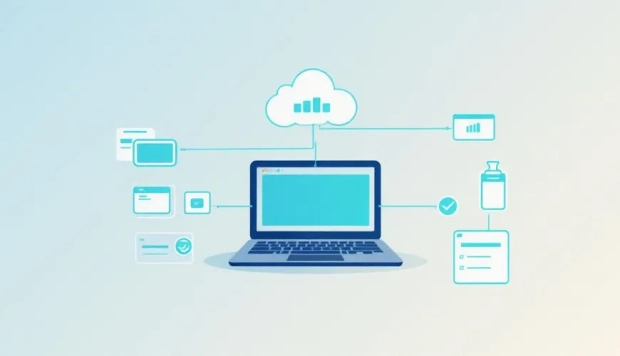The Modern Approach to Administrative and Executive Support

The role of administrative and executive support has transitioned significantly in recent years. As organizations evolve and adapt to the needs of a fast-paced, technology-driven environment, the expectations and responsibilities of administrative professionals have expanded. This transformation goes beyond mere clerical tasks; it encompasses strategic planning, relationship management, and advanced communication skills. To thrive, administrative and executive support professionals must embrace these changes and refine their skill sets to meet the dynamic demands of their roles.
The Evolving Landscape of Administrative Support
Traditionally, administrative support was viewed as a subset of clerical work. Tasks such as data entry, scheduling meetings, and handling correspondence dominated the job description. As businesses have become increasingly complex, the role of administrative support has evolved into a multifaceted position that plays a crucial role in operations. Modern administrative professionals are now involved in project management, decision-making processes, and workflow improvement strategies.
This shift reflects a growing recognition of the importance of effective administrative support. Organizations that invest in their administrative teams can enhance overall productivity and workplace efficiency. According to recent studies, companies that empower their administrative professionals tend to experience increased employee satisfaction and lower turnover rates. This trend indicates that organizations are starting to recognize the value of strategic integration of administrative support into their core business functions.
Key Skills for Modern Administrative Professionals
In the current landscape, several skills are critical for success in administrative and executive support roles. Firstly, masterful communication abilities stand out as a fundamental requirement. Whether managing internal information or external correspondence, effective communication fosters trust and facilitates smooth operations. Administrative professionals often serve as the first point of contact for clients and stakeholders, which underscores the need for clarity and professionalism.
Time management is another vital skill for modern administrative professionals. Balancing multiple priorities and managing various projects requires a keen sense of organization and effective scheduling. Administrative support personnel are often responsible for coordinating appointments, meetings, and events, making their ability to prioritize tasks key to maintaining smooth operational flow. Incorporating an efficient appointment scheduling help system can enhance productivity and streamline workflows.
The Importance of Technology in Administrative Support
The rise of digital technology has transformed how administrative professionals perform their roles. Familiarity with software tools such as project management platforms, communication software, and document collaboration services has become indispensable. Many organizations rely on cloud-based solutions to facilitate real-time collaboration among team members, regardless of geographical location.
Embracing digital tools allows administrative professionals to enhance their efficiency significantly. Numerous applications can automate repetitive tasks, freeing up valuable time for more strategic activities. Advanced calendar systems can optimize scheduling, reducing conflicts and improving coordination. Keeping abreast of emerging technologies ensures that administrative professionals remain competitive in their field.
Integrating Administrative Functions Across Departments
Modern administrative professionals no longer work in isolation. There is an increasing need for them to collaborate across departments, aligning their contributions with organizational objectives. By participating in cross-departmental projects, administrative staff can gain insights into various functions, enhancing their effectiveness in their role.
The ability to engage with different teams and understand their unique challenges allows administrative professionals to provide tailored support. Assisting in project management initiatives requires a comprehensive understanding of the specific needs of each department involved. This collaborative approach paves the way for stronger relationships and a more cohesive workplace culture.
Professional Development and Lifelong Learning
Continuous professional development is crucial for administrative and executive support personnel. As industries evolve, staying informed about best practices, trends, and emerging tools is essential. Many organizations encourage participation in training programs, workshops, or certification courses to help administrative professionals enhance their skill sets.
Lifelong learning fosters adaptability and prepares administrative professionals for evolving challenges. Engaging with professional networks can provide access to resources, mentorship opportunities, and industry insights. Administrative support personnel who commit to their growth not only increase their value to their organizations but also bolster their career advancement potential.
Building Strong Relationships with Stakeholders
Effective administrative professionals understand the significance of building strong relationships with stakeholders. From colleagues to clients, a foundation of trust and rapport facilitates smoother interactions and improves collaboration. Administrative support often serves as the bridge between teams and upper management, making strong interpersonal skills pivotal to the role.
Proactively engaging with stakeholders can lead to better communication, which enhances productivity and efficiency. Active listening plays a crucial role in understanding needs and expectations, allowing administrative professionals to tailor their support effectively. A collaborative attitude combined with empathy builds lasting partnerships, ensuring mutual respect and long-lasting working relationships.
The landscape of administrative support has transformed dramatically in recent years, reflecting changing organizational needs and expectations. Modern administrative professionals must embrace technological advancements and cultivate essential skills to thrive. Active engagement and collaboration with other teams have become cornerstones of the role, further enhancing its importance. With a commitment to continuous development, administrative support personnel can position themselves as valued contributors, driving their careers and the success of their organizations.



